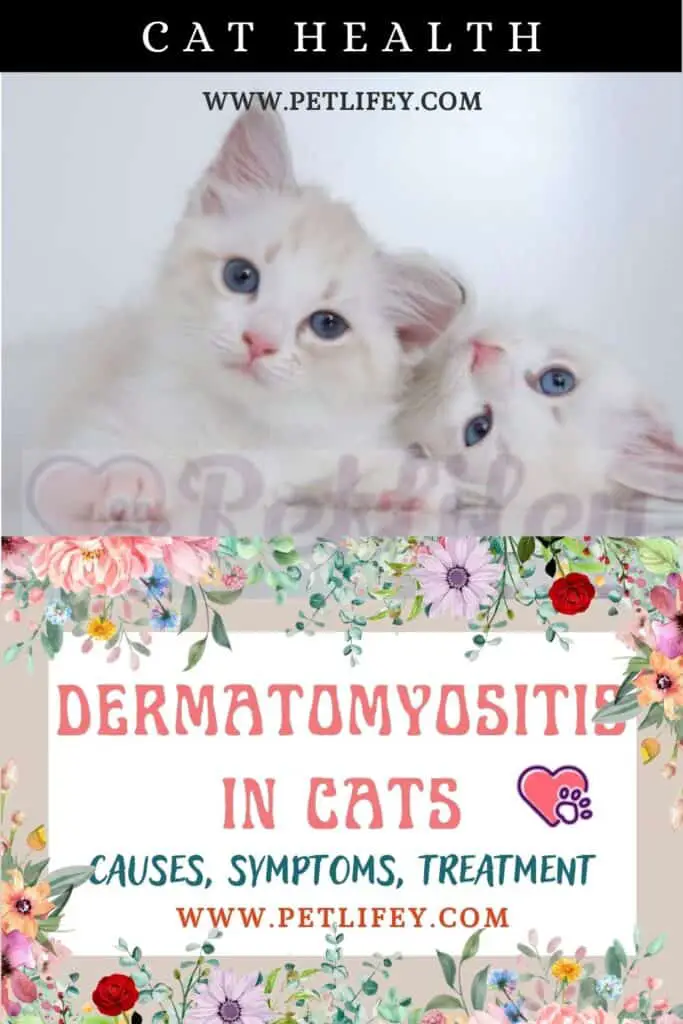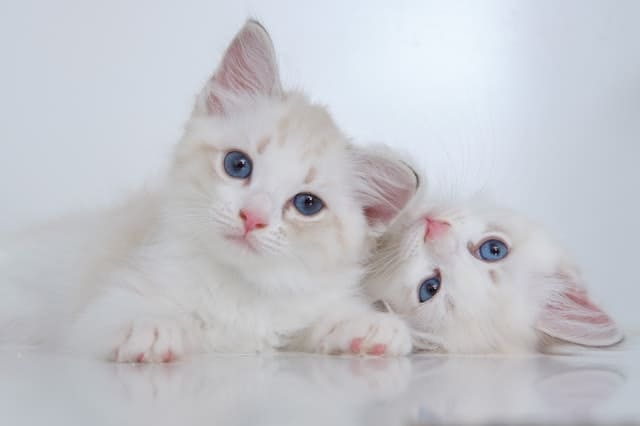Dermatomyositis in cats, a very serious and difficult disease for your feline to bear. Let’s try to understand the triggering causes, the symptoms and the recommended treatment.

To give a quiet and peaceful life to your pet cat it is very important to observe him in his behaviour every day. The feline can go through delicate moments, over time, and be affected by disorders or even rare diseases, on which it is good to inquire to know how to act. Let’s talk about a rather rare and dangerous pathology, dermatomyositis in cats and how to behave to help it.
Dermatomyositis in cats: causes and symptoms
It is a rare and very serious disease that can affect the feline. This particular disease can have different causes as well as the symptoms that occur in the animal. Let’s get to know everything about dermatomyositis in cats.
Living together with your beloved cat, you are never ready for any health and behaviour problems. But the cat, like all pets can suffer from diseases, even serious and quite little common.
There is a serious and fairly rare inflammatory disease that cats can suffer from: dermatomyositis. This disease affects the muscles and the skin of the hairy and it is also very painful. Being uncommon, it is important to diagnose it and intervene in time. But what are the causes that cause it?
We are talking about a disease that can strike the cat suddenly and which is among the diseases defined as myositis and can also reveal the presence of other pathologies in the animal. Dermatomyositis occurs when all of the cat’s muscles are affected.
This inflammatory disease affects mainly in the basis of race and can be hereditary, and transmitted genetically. There are, however, some causes that can favour its development, such as environmental factors, the administration of certain vaccines and exposure to ultraviolet rays.
Other causes of dermatomyositis or myositis in cats can be:
- Parasites and bacteria (eg toxoplasmosis in cats )
- Tumors
- Immune-mediated reaction
- Paraneoplastic syndrome
Symptoms of dermatomyositis in the feline
Dermatomyositis in cats can occur more in some felines than in others and has various symptoms, first of all annoying and very painful lesions on the skin. It affects mainly those puppies than adult cats, because of weak immune system. Other typical and obvious symptoms of dermatomyositis are:
- Severe and painful skin lesions
- Wounds on the face, head and body that can bleed
- Weakness
- Lethargy in cats
- Loss of muscle tone
- The cat eats with difficulty
- General muscle stiffness
- The cat does not walk well
- Paralysis in the cat
Unfortunately, these symptoms are very difficult for your pet to endure. Dermatomyositis in cats can make it complicated every daily action and upsets completely to his life, leading him to suffer a lot.
Therefore, it is essential to pay attention to the signals that the feline sends us, in order to be able to detect such a dangerous disease in time and immediately intervene to its rescue.
The cat and the pathology: care and treatment

We have seen the terrible and dangerous symptoms of dermatomyositis in cats and how important it is to always observe your pet to avoid complications. In case of one or more visible symptoms, it is necessary to consult with the veterinarian and decide what to do. Let’s see better what you need to know.
For this inflammatory disease there is no real cure since, as we have mentioned, it is of genetic origin. What can be done for the hairy is a symptomatic treatment, that is a therapy that provides for the control of his symptoms throughout his life, to try to alleviate his suffering and avoid further physical and behavioural problems.
It is a fairly demanding therapy from an economic point of view, which involves the administration of specific vitamins and drugs, however, able to manage the progression of the disease in the cat.
In his delicate condition, strategies must be adopted to protect his skin from further problems and damage, such as avoiding excessive sun exposure and facilitating his feeding, with digestible foods. Furthermore, skin lesions can be treated with specific products, always under medical advice and prescription.
It will be only the doctor veterinarian to assess what is the treatment best suited to the condition of myositis in feline, based on the severity of the disease, through test and further tests that will be carried out also in the course of time.






